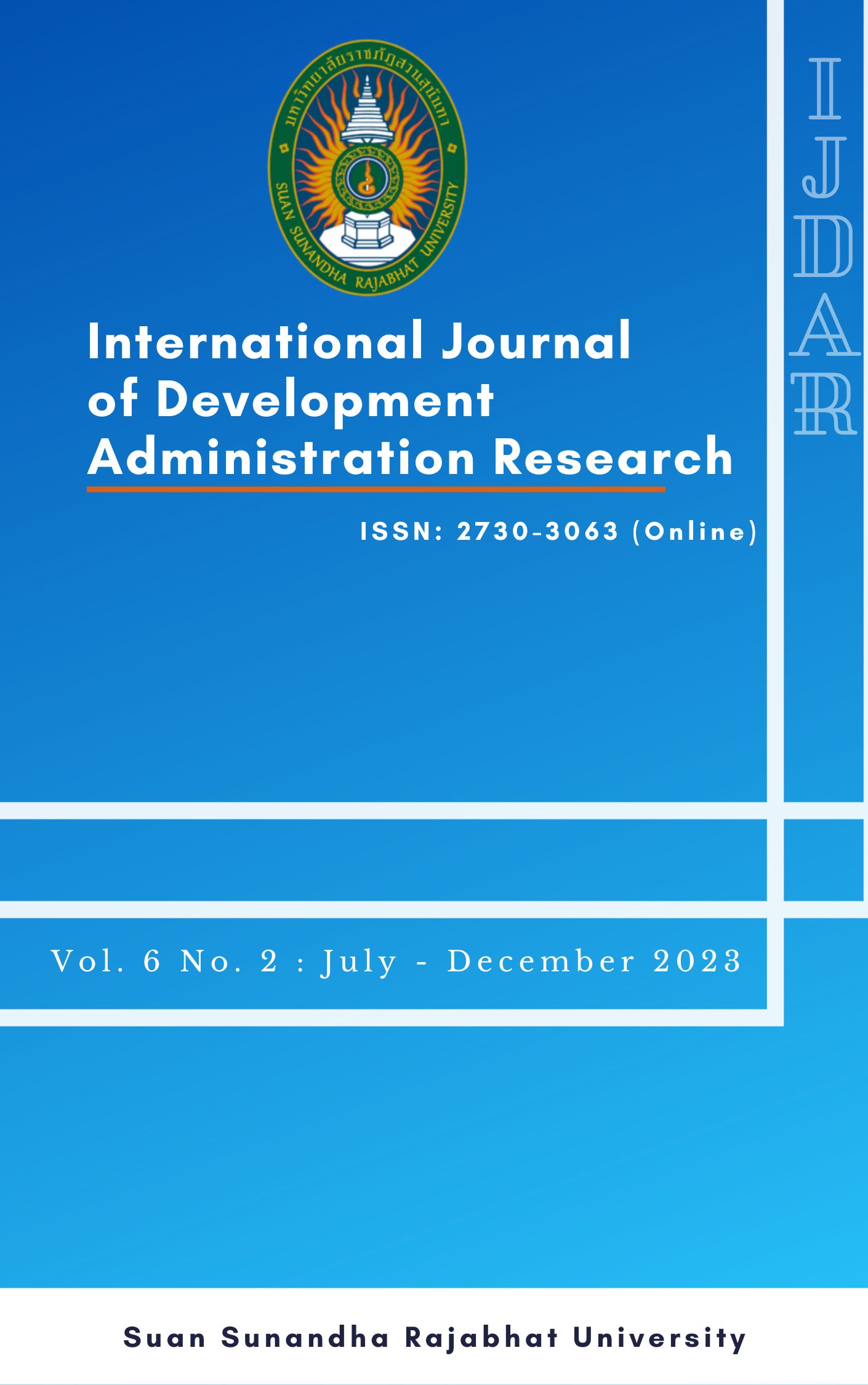The Creation of a National DNA Database for Forensic Evidence in Criminal Justice
Main Article Content
Abstract
The research aims 1) to study laws, DNA data storage authority and criterion, and a National DNA database creation in England, the United States, and the People's Republic of China, 2) to study legal problems that were obstacles to creating a National DNA database for forensic evidence in criminal justice, and 3) to propose the creation of a National DNA database for forensic evidence in criminal justice. This research is legal research with qualitative research and documentary research by studying data from academic articles, journals, academic documents, research, and case examples related to laws, DNA data storage authority, DNA data storage criterion, and the manipulation of National DNA database in England, the United States, and the People's Republic of China.
It found three proposals for creating a National DNA database: 1) DNA data storage authorization: prioritize protecting individual rights and freedoms as much as the state's interest in effectively maintaining national security and law enforcement. 2) DNA data storage criterion: This is because collecting DNA from the body inevitably affects privacy rights. Therefore, if it is considered that storing DNA from a person's body only slightly affects the person’s rights and freedoms more than the state’s benefit, it is more limited to creating a DNA database for forensic evidence in criminal justice. 3) National DNA database creation: improving the act to establish authority, duties, and criteria. Moreover, it allocates man, money, materials, and management to be ready and sufficient for successful operations.
Article Details
License Terms
All articles published in this journal are licensed under the Creative Commons Attribution–NonCommercial–NoDerivatives 4.0 International License (CC BY-NC-ND 4.0).
Under this license, users are permitted to:
- Share — copy and redistribute the material in any medium or format.
Under the following conditions:
- Attribution (BY)
Users must give appropriate credit to the author(s) and the journal, provide a link to the license, and indicate if any changes were made. Attribution must not suggest endorsement by the author(s) or the journal.
- NonCommercial (NC)
The material may not be used for commercial purposes. Any use primarily intended for or directed toward commercial advantage or monetary compensation is prohibited without prior written permission from the copyright holder.
- NoDerivatives (ND)
If users remix, transform, translate, adapt, or build upon the material, they may not distribute the modified material. The work must be shared in its original and unaltered form.
This license ensures that published works remain freely accessible to the academic community and the public, while protecting the integrity of the original research and the rights of the author(s).
For the full legal code of this license, please visit:
https://creativecommons.org/licenses/by-nc-nd/4.0/
References
Boonthawatsak, P, (2015). Collection and use of DNA identification information from offenders in the US: The case study for Thailand. Ramkhamhaeng Law Journal, 4.
Chuesiang, T. (2013). Rights and freedom protection: study the collection of DNA evidence. Master's degree of laws, criminal law, faculty of law, Thammasat University.
Criminal History Registration Division, (2012). Organizational structure. Retrieved November 5, 2022, From https://criminal.police.go.th/structuralunit.php
Sarakit C. (2022). Objectives of the criminal justice system. Retrieved November 5, 2022,from http://chalermwutsa. blogspot.com/2013/11/crime-control-model-and-due-process.html
Tangon R, (2019). Criminal Justice and National DNA Database: European Union’s Experience. Journal of Politics, administration, and Law, 8.
Webster, J. (2000). DNA database statutes & privacy in the information age. Health Matrix: The Journal of Law Medicine, 10(1), 119.
Wimonses W, (2020). DNA database and necessity for establishing DNA database in Thailand. Doctor of Philosophy (Forensic science and criminal justice) graduate school, Silapakorn University.


